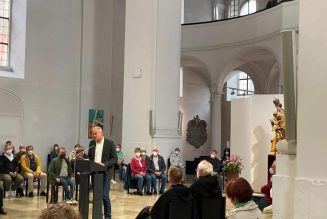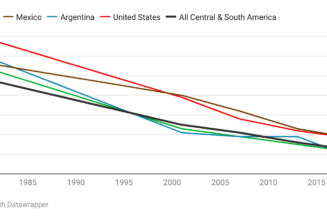By Dr. Jeff Mirus ( bio – articles – email ) | Sep 19, 2023
To read the Second Book of Samuel in the Old Testament is to be frustrated by both Kind David and, I suspect, ourselves. In David, we have a man who was generally prompt to accept God’s will and to do his best to follow God’s direction. Even when he sinned—as he did egregiously in the matter of Bathsheba and her husband Uriah—he recognized his guilt when rebuked by Nathan the prophet, and immediately admitted: “I have sinned against the Lord.” And after Nathan had announced that God’s punishment would be the sickness and death of the son born of his adultery, David sought to avert this punishment through constant prayer and fasting for the baby.
But when the child died, to everyone’s surprise, he immediately got up, washed, and ate. Therefore, his servants remonstrated with David, and David just as promptly replied. Here is that conversation:
“What is this thing that you have done? You fasted and wept for the child while he was alive; but when the child died, you arose and ate food.” He said, “While the child was still alive, I fasted and wept, for I said, ‘Who knows whether the Lord will be gracious to me, that the child may live?’ But now he is dead. Why should I fast? Can I bring him back again? I shall go to him, but he will not return to me.” [2 Sam 12:21-23]
This alone is a remarkable testament to faith under trial. Few of us would do as well.
Mixed results
Of course, David could be impetuous and he could, on occasion, act not only foolishly but with evil intent, which is enough to make him an interesting study for the rest of us. Nonetheless, despite his shortcomings and sins, he was remarkably quick to accept God’s will and God’s judgment whenever he was brought face to face with it. For example, he knew that part of God’s judgment on his own sins was that there would be strife within his own house; moreover, he had good reason to interpret his own sufferings as encompassed in God’s will.
You may recall that when he had to flee Jerusalem because of his son Absalom’s seizure of the Kingship, one Shimei (of the family of Saul) came out to curse David and throw stones at him as he and his men were passing by. One of his men, Abishai, exclaimed, “Why should this dead dog curse my lord the king? Let me go over and take off his head.” But David answered:
“If he is cursing because the Lord has said to him, ‘Curse David’, who then shall say, ‘Why have you done so?’…. Behold, my own son seeks my life; how much more now may this Benjaminite! Leave him alone, and let him curse, for the Lord has told him to. It may be that the Lord will look on the wrong done to me, and that the Lord will repay me with good for his cursing today.” [2 Sam 16:9-12]
(Note that in interpreting this passage, we should remember that in the Old Testament the distinction between what we now call God’s permissive will and God’s active will is often blurred by the insight that everything is mysteriously encompassed in God’s will.)
Moreover, when David returned in triumph, Shimei approached him to ask forgiveness, and once again Abishai insisted that he should be put to death, but David in his victory exclaimed: “Shall anyone be put to death in Israel this day?” and David swore to Shimei, “You shall not die.” Of course David, after all, had not had the opportunity to be interiorly transformed by the full grace of Jesus Christ, the Son of God. Thus, when David passed his Kingship on to his son Solomon, the natural man in him still remained. He had kept his word to Shimei, but he still harbored a grudge, and he gave these instructions concerning Shimei to Solomon:
“I swore to him by the Lord, saying, ‘I will not put you to death with the sword.’ Now therefore do not hold him guiltless, for you are a wise man. You will know what you ought to do to him, and you shall bring his gray head down with blood to Sheol.” (1Kings 2:8-9)
Just as soon as he could find a pretext, Solomon did exactly that.
What about us?
Again, David did not have the benefit of the sublimity of Divine teaching and the astounding life of grace now available in an intimate union with Jesus Christ through the ministry of His Church. But we are still capable of waxing hot and cold in our fidelity, struggling for years to fully overcome habitual faults, falling into large or small sins, or simply fretting in various combinations of weakness and frustration. This is reflected even in our very human lack of perfect tranquility. (How many times have I lain awake at night preoccupied with various affairs—not even necessarily serious affairs—instead of being able to instantly let go and let God?)
Quite apart from mortal sins, in one moment we may be overflowing with gratitude to God and in the next we may catch ourselves in a frivolous distraction or even a temptation or sinful thought that we are still “a trifle slow” in banishing. A classic sign of this habitually imperfect recollection in my own life is when I notice somebody in Church who, rather than focusing on prayer, is looking around, prompting me to instantly think a little bit accusingly of him or her—and then I realize I would not be able to see that person unless I were doing exactly the same thing! In any case, our emotional and spiritual equanimity is still easily upset by challenges, setbacks, or (more understandably) by disasters, though we know that what we regard as a disaster may or may not be considered disastrous by God. Moreover, we may still (still!) be prone to worry more about material than spiritual difficulties.
Most of us, even in the knowledge and grace of Christ, complain too much and encourage ourselves and others too little. All of us, I suspect, have past sins that bother us too little or, having repented and confessed them, continue to bother us too much! The devil is always at work! Therefore, at times most of us feel like we are treading water or covering once again the same old ground. No wonder the author of the Letter to the Hebrews writes: “Encourage each other while it is still today, that none of you may be hardened by the deceitfulness of sin. For we have come to share in Christ, if indeed we hold our original confidence firm to the end!” (Heb 3:13-14)
Part of the problem (or so I hope and believe) is that we are becoming spiritually more sensitive, spiritually more alert, more accustomed to the Presence of God as we grow. But particular bad habits are not the only things that die hard; old tendencies are similarly tenacious, and not always for the best. I hope that no Catholic who is bothering to read this is any longer likely to be trapped by David’s particular self-deception (“I won’t retaliate personally but, by God, I’ll see that he or she gets it in the end”). Still, for Christians who are supposed to be light and gentle in spirit, we may find ourselves at times dragging ourselves far too heavily over the same old ground.
And the condition of the Church?
I suspect that for the highly committed, there is another frustration—and another trap of the Devil—in the sense we may have that the Church is more or less in shambles, and is certainly in decline, with very little we can do to change it—though we really cannot know this from human observation alone. But the answer to this frustration is the same as to all the others (given that we have discerned our vocations, prayed about all our subsequent opportunities and plans, sincerely examined our consciences from day to day, devoted a reasonable portion of time to personal prayer, attendance at Mass and reception of the sacraments, and persevered in the practice of the Presence of God). Unlike King David in his day, we are members of the Mystical Body of Christ, to which in its outward appearance we might well borrow an expression of Mother Teresa about Christ “in His most distressing disguise”. For though the saint applied it to the poor, we can apply it also to ourselves and the visible Church around us.
As I have often repeated, we are not called to be successful in our endeavors; we are simply called to be faithful. One sows and another reaps (Jn 4:37) but the harvest is the Lord’s (Mt 9:38). And it is only the Lord who can say, “Put in your sickle, and reap, for the hour to reap has come, for the harvest of the earth is fully ripe” (Rev 14:15). Or perhaps we can put this another way, as Our Lord did in Luke’s gospel (10:41-2): “Martha, Martha, you are anxious and troubled about many things; but one thing is needful. Mary has chosen the good portion, which shall not be taken away from her.”
Eyes front! Eyes on Christ.
Sound Off! CatholicCulture.org supporters weigh in.
All comments are moderated. To lighten our editing burden, only current donors are allowed to Sound Off. If you are a current donor, log in to see the comment form; otherwise please support our work, and Sound Off!










